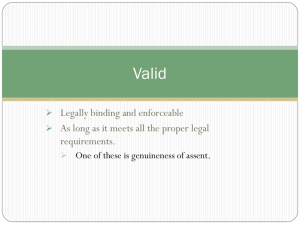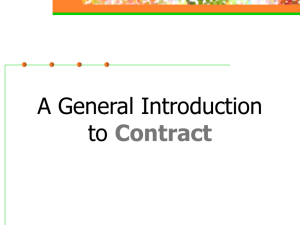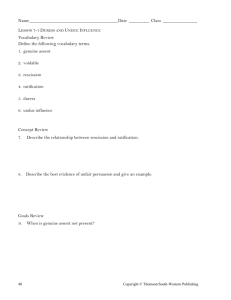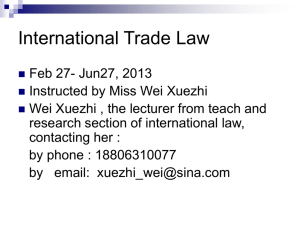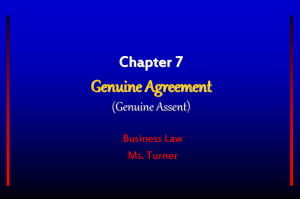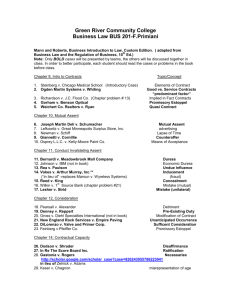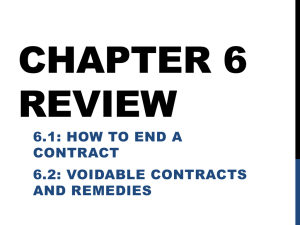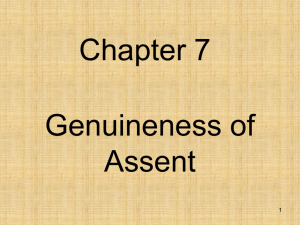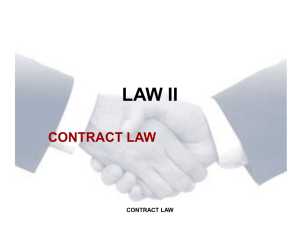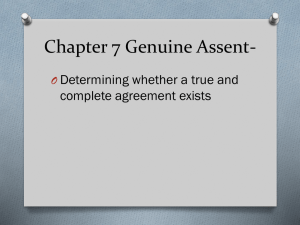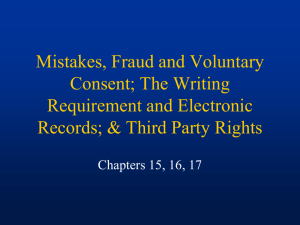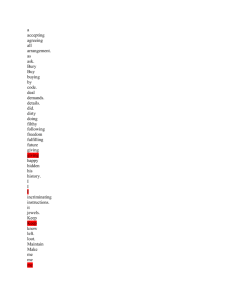CHAPTER 8 TEST REVIEW
advertisement
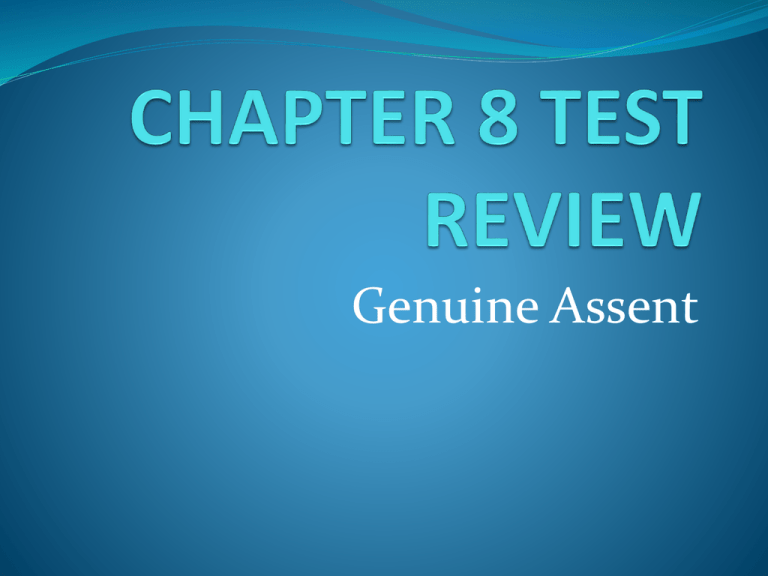
Genuine Assent 6 PARTS OF A VALID CONTRACT Offer and Acceptance Genuine Assent Consideration Capacity Legality Writing GENUINE ASSENT Entering a contract under your “Own Free Will” NOT being forced (Duress) NOT being misled (Misrep or Fraud) NOT holding an incorrect belief about what you are entering into (Mistake) GENUINE ASSENT Also known as Genuine Agreement and Mutual Assent What if there is no Genuine Assent? Contract is Voidable Only the injured party may end the contract agreement Ratification Showing Intent to be bound by a contract Best way to ratify is a signature Can ratify through an option (Payment) Rescission Backing out of a transaction by asking for a return of what you gave in exchange for what you received Must occur “PRIOR” to Ratification Only damage available in a case of Misrepresentation Duress Using an improper threat or act to obtain an agreement TYPES: Illegal conduct Threaten to report a crime Threaten to sue Economic threats Undue Influence Type of duress 2 Elements to prove: Unfair Persuasion Using a relationship with a person MISTAKES Unilateral- one side holds an incorrect belief about the Subject matter of the contract (Voidable) Bilateral- (Also known as Mutual) When both sides hold incorrect beliefs about the subject matter of a contract (Void) 2 Types of Unilateral Mistakes Recognized Unilateral Mistake: Mistake is major (Big) and 1 side knows, but allows the other side to think everything is as agreed (Can get recession) Induced Unilateral Mistake: One side “encourages” or induces the other side to make a mistake, the contract is immediately “Voidable” Material Facts Something important in a contract Has to do with the main subject matter 2 types of Mutual Mistakes Mistake of the Subject Matter- Both sides hold incorrect beliefs about what they are agreeing to in a contract (Void) Mistake of the Law- Both sides agree to something that turns out to against the law (May be void and in some states, the agreement is still valid) Misrepresentation Untrue Statement of Fact “Told” to a person Material (Important) to the person making the decision Relied upon (The person misled relied upon it to make their decision to enter the contract) Fraud “First” must prove 3 elements of Misrep (Untrue statement, material and relied upon) “Then” prove: Intent to deceive Injury Active Concealment Intentionally trying to “hide” something from one side Ex) Covering up a wall with a hole in it to make a person think it’s not damaged Silence Seller may remain silent unless one of 3 things happens: 1. When a material fact omits information 2. When a true statement is made false 3. When the seller knows the other party has made a mistaken conclusion Remedies for Misrep and Fraud Misrepresentation- ONLY rescission Fraud- Rescission, compensatory damages and punitive damages
